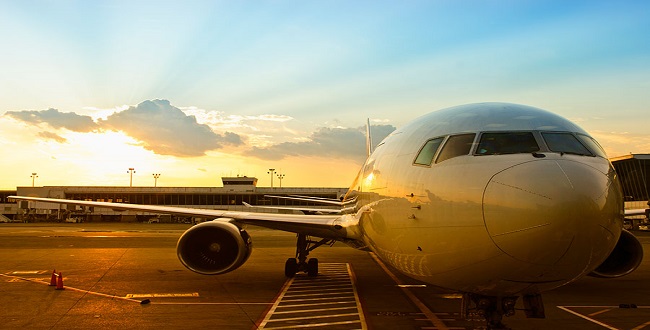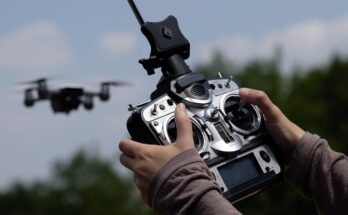Rising demand for existing connectivity systems and modernization in technology is influencing the adoption of connected aircraft in the connected aircraft market.
According to TechSci Research report, “Connected Aircraft Market – Global Industry Size, Share, Trends, Competition, Opportunity, and Forecast, 2018-2028”, the connected aircraft refers to the use of technology to connect various systems and components within an aircraft. This technology enables real-time data transmission and analytics, predictive maintenance, and enhanced passenger experiences, among other benefits.
In the application segment, the commercial aircraft segment had a higher market share as compared to military aircraft segment. Owing to the demand for connected aircraft technology from the commercial airlines, who have been continuously focusing on improving in-flight connectivity for passengers. Also, commercial airlines have been adopting connected aircraft technology in the past few years to improvise the passenger experience and stay competitive in the market. In-flight connectivity has been a major focus for commercial aviation over the past few years, and this has led to the adoption of connected aircraft technologies. On the other hand, connected aircraft technology is relatively new for the military, and thus the demand from this segment is expected to be more.
However, the military segment is expected to grow with the highest compound annual growth rate (CAGR) during the forecast period. This is because the armed forces of several countries are expected to modernize their aircraft fleet and incorporate these technologies in their aircraft in the coming years. This modernization is expected to lead to increased adoption of connected aircraft technology in the military segment. The growth potential for connected aircraft technology in the military segment is significant. The technology can be used for various applications such as real-time data transmission, predictive maintenance, and enhanced situational awareness. The modernization of the military aircraft fleet is expected to create a significant demand for connected aircraft technology, leading to growth in the military segment of the market. Therefore, the connected aircraft market is expected to grow significantly in the coming years, driven by the increasing adoption of this technology by both commercial and military aircraft segments. While the commercial aircraft segment currently has a higher market share, the military segment is expected to grow at a faster rate due to the modernization of the aircraft fleet. It is anticipated that, the increased adoption in civil and commercial applications will foster the market expansion in the coming years.
Browse more than XX market data Figures spread through XX Pages and an in-depth TOC on “Global Connected Aircraft Market”
https://www.techsciresearch.com/report/connected-aircraft-market/15467.html
The connected aircraft market is characterized by the presence of many players who provide hardware, software, and solutions for air-to-air, air-to-ground, and inflight connectivity. This fragmentation creates a competitive environment where companies are constantly innovating and improving their offerings to stay ahead of the competition. The market is relatively new, which means high scope for both new and existing players to grab new opportunities through technological pioneering. Strategic partnerships can be an effective way for market players to penetrate further into the market. By forming partnerships, companies can leverage each other’s strengths and expertise to create more comprehensive solutions. For example, in the year 2018, Panasonic Avionics formed two separate partnerships with Inmarsat and Ericsson to work together in the field of connected aircraft technologies.
Panasonic Avionics is a leading provider of inflight entertainment and communication systems, while Inmarsat is a leading provider of satellite communication services. By partnering with Inmarsat, Panasonic Avionics was able to leverage their expertise in satellite communication to enhance their inflight connectivity solutions. Similarly, by partnering with Ericsson, a leading provider of communication technology and services, Panasonic Avionics was able to enhance their air-to-ground connectivity solutions. These partnerships enabled Panasonic Avionics to offer more comprehensive solutions to their customers and stay ahead of the competition. By leveraging the strengths of their partners, they were able to create innovative and effective solutions for the connected aircraft market.
Hence, the connected aircraft market is highly competitive and fragmented, with many players offering hardware, software, and solutions for air-to-air, air-to-ground, and inflight connectivity. Strategic partnerships can be an effective way for companies to penetrate further into the market and create more comprehensive solutions. The partnerships formed by Panasonic Avionics with Inmarsat and Ericsson are examples of how companies can leverage each other’s strengths to create more innovative and effective solutions for the connected aircraft market.
The connected aircraft market is segmented by connectivity, application, type, frequency band, company, and region. Based on connectivity, the market is segmented into Air-to-air connectivity, air-to-ground connectivity, and inflight connectivity. Based on application, the market is divided into commercial and military. Further, based on frequency band, the market is divided into Ka band, Ku band, and L- band. The market analysis also studies the region wise segmentation to devise connected car market, divided among Asia-Pacific, Europe & CIS, Americas, and rest of the world.
Some of the major companies operating in the global connected aircraft market include:
- SITA
- Gogo Inc.
- Honeywell International Inc.
- Panasonic Avionics Corporation
- Thales Group
- Global Eagle Entertainment Inc.
- Collins Aerospace (United Technologies Corporation)
- Inmarsat Global Limited
- Cobham PLC
- Kontron S&T AG
- ViaSat IncAeroVironment Inc
These are the key players manufacturing and launching new products to stay competitive in the market. To increase the customer outreach, the companies are investing in research and development activities to stay competitive in the market. These companies are also focusing on meeting the regulations of different regional governments to stay competitive in the global market.
Download Free Sample Report
https://www.techsciresearch.com/sample-report.aspx?cid=15467
Customers can also request for 10% free customization on this report.
“Due to the lucrative market opportunities around the world, giants like Google, Amazon, DHL, Uber, Boeing, and Airbus have been heavily investing in R&D in UAV technology over the past few years. However, the use has rapidly increased in a wide range of commercial, scientific, recreational, and other civil services applications, in the upcoming years the market will grow rapidly.” said Mr. Karan Chechi, Research Director with TechSci Research, a research-based global management consulting firm.
“Connected Aircraft Market– Global Industry Size, Share, Trends, Opportunity, and Forecast, 2018-2028, Segmented By Connectivity (Air-to-air Connectivity, Air-to-ground Connectivity, Inflight Connectivity), By Application (Commercial & Military), Based on Frequency (Ka Band, Ku Band, L-band), By Region, Competition, Forecast and Opportunities, 2028” provides statistics and information on market structure, size, share, and future growth. The report is intended to provide cutting-edge market intelligence and help decision makers take sound investment decisions. Besides, the report also identifies and analyzes the emerging trends along with essential drivers, challenges, and opportunities present in the global connected aircraft market.
Contact
Mr. Ken Mathews
708 Third Avenue,
Manhattan, NY,
New York – 10017
Tel: +1-646-360-1656
Email: [email protected]
Website: https://www.techsciresearch.com




